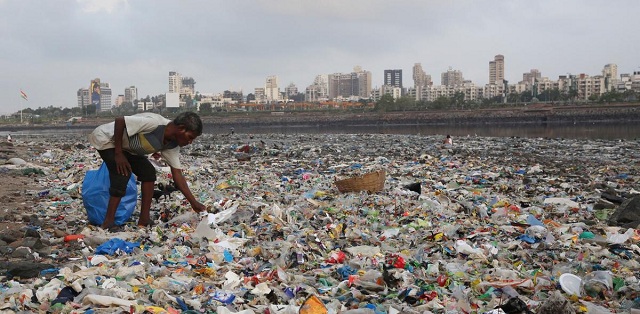Why We Need Plastic Ban?
Why We Need Plastic Ban?
Plastic pollution is a major problem for all of us.
We have already discussed how critical is pollution from plastics.
Plastic pollution is the accumulation of plastic objects and particles (e.g. plastic bottles, bags and microbeads) in the Earth's environment that adversely affects wildlife, wildlife habitat, and humans. Plastics that act as pollutants are categorized into micro-, meso-, or macro debris, based on size.
Here are few things why plastic should be banned :-
Negative impact on environment
One of the biggest threats about plastic bags is that they threaten the environment. Plastic bags pollute the land and water, since they are lightweight, plastic materials can travel long distances by wind and water. Besides, these material bags are made from non-renewable resources. The majority of plastic bags is made of polypropylene, a material derived from petroleum and natural gas. Both of them are non-renewable fossil fuel-based resources, which contribute to global climate change.
High cost of production
It is said that the production of plastic material are very energy intensive. In order to produce nine plastic bags, it takes the equivalent energy to drive a car one kilometer (more than 0.5 miles). Using these resources to make plastic bags is not advisable since the life of plastic bag is just about 12 minutes. Plastic bags are not easy to recycle
Most of the plastics are not recyclable. Though some kinds of plastic bags can be recyclable, many done possess the technology or the plants to recycle them. According to various estimates, the actual recycling rate for plastic bags is about 5- 6 percent.
Threat to marine life
Since plastic bags are not recyclable, they end up in the oceans. While they reach, they break up into tiny little pieces and are consumed by wildlife. It is estimated that 46,000-1,000,000 plastic fragments floating within every square mile of the world’s oceans. Due to their size, they are often mistaken for food by animals, birds, and marine life like fish, whales and sea turtles. Thereby congesting their digestive system lead to health issues such as infections or even death by suffocation. Many animals also get entangled or trapped.
Conclusion
Though recycling is the best option for plastic, methodology and systematization for recycling is slow. While the production model of plastic is very huge and uncontrollable, the numbers of recycling plants are very less. This vast gap must be closed. According to an international survey, around 600 billion plastic bags are used every year and, because of their in disposable quality, many are swept into rivers or drains not just clogging but eventually ending up in the ocean. This makes plastic bags among the top 10 items of debris found in oceans and coastlines. So increasing the number of recycling plants in the only option for renewed used on plastic. Besides, plastic ban forces the customer to buy the recyclable plastic bags and reuse of disposable bags. This can also encourage reuse of the bags. Moreover, such a ban could be complemented by ensuring that retail shop keeper and big shopping complexes to team up with plastic recycling firms and set up even collection points for the bags which no longer be reused. Finally, government should educate the public and trade bodies to achieve the benefits of the ban. Since long term benefits of plastic bag ban use will benefit the economy and also save taxpayer money can lead to plastic bag cleanup.
ABOUT US :
Hydrte was launched in 2019 with one main goal in mind, to produce a water bottle that helped significantly reduce single-use plastic consumption, whilst being stylish & convenient.
One million single-use plastic water bottles are sold every 60 seconds worldwide.
This is a huge problem for our planet.
60% of these bottles end up in landfill or even our rivers and oceans.
The Hydrte bottle was designed in London, inspired by the busy lifestyle of the city itself. The shape of the Hydrte bottle is unique, practical and convenient.


Comments
Post a Comment